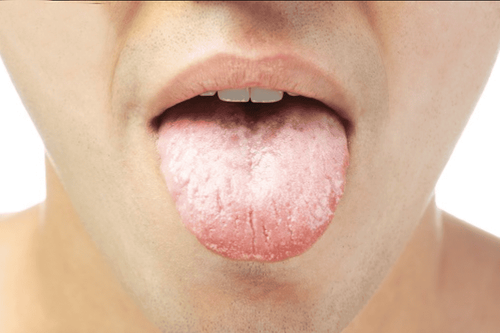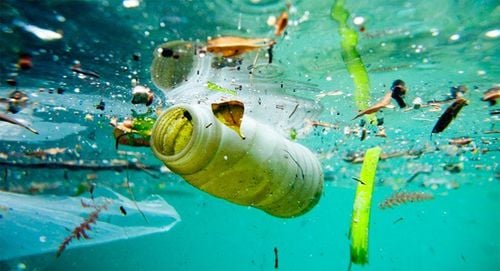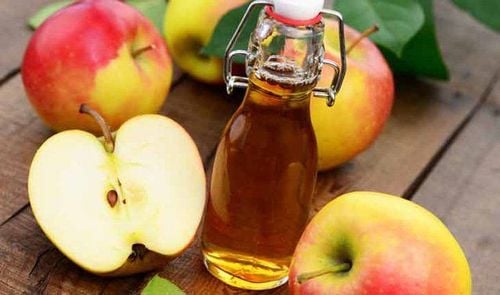This is an automatically translated article.
Drinking water every day is very important. The effect of each drink is different on health and depends on the body, each person has different water needs.1. Why is it necessary to add water to the body?
Water makes up a large percentage of the body - an average of 60% of body weight in men and 50-55% in women (because women have a higher percentage of body fat). Water has many functions in the body including regulating temperature, transporting nutrients in the blood, removing waste products through urine and acting as a lubricant and shock absorber in the joints. Water is lost through urine and sweat, and small amounts are also lost during the day by breathing and evaporating through the skin.To avoid dehydration, you need to replenish your body with water regularly through food and drink. You also get water from the food you eat, it is estimated that food provides about 20% of the total body water
2. What happens when the body is dehydrated?
Symptoms of mild dehydration include dry mouth, headaches, and poor concentration. When the body detects that it needs more water, the first thing that happens is that the kidneys reduce the amount of water lost through the urine. This means that the color of your urine becomes darker and you can use the color of your urine to see if you are sufficiently hydrated. If you drink enough, your urine will be straw yellow or pale yellow. If it's darker then you may need to add more water. Thirst begins to appear when the body is really lacking in water.
Các triệu chứng của mất nước nhẹ bao gồm khô miệng, đau đầu và kém tập trung
3. How much water is enough for the body?
The amount of fluid your body needs depends on many things including the weather, your level of physical activity and age, but health organizations generally recommend about 1.5-2 liters of water per day. If the weather is hot or you're exercising, your body may need more than that. You can hydrate your body from nearly all the fluids you drink, with the exception of stronger alcoholic beverages like wine and spirits.Is it possible to drink too much water? When too much water is added to the body, the body can't get rid of the excess water fast enough and blood sodium levels become dangerously low. This can have serious health consequences, although not often in practice.
Do you need a sports drink when exercising? Physical activity also increases your fluid needs to replace the water you lose in the form of sweat. The need to replenish water for the body at this time depends on the time you are active, the intensity of the activity and whether the weather is hot or humid. Physical activity should be started with adequate amounts of water and taken at intervals during exercise. Need to replenish water after exercise. However, for intense exercise lasting more than 1 hour or longer, beverages containing some sugar and sodium (salt), such as electrolyte-fortified beverages, may be better than water. drink normally.

Lượng chất lỏng cơ thể cần phụ thuộc vào nhiều điều bao gồm thời tiết, mức độ hoạt động thể chất và độ tuổi nhưng các tổ chức y tế thường khuyên bổ sung khoảng 1,5 - 2 lít nước mỗi ngày
4. Which drink should be chosen to replenish water for the body?
All non-alcoholic beverages can contribute to hydration and some also contain essential vitamins and minerals. However, many drinks, such as soft drinks and fruit juices, are high in sugar and contain a lot of energy (calories). These calories contribute to your daily calorie intake as much as the calories from the food you eat. In addition, high consumption of sugar-sweetened beverages is associated with an increased risk of type 2 diabetes and weight gain in children. Taking care of your teeth is also important, and consuming sugary drinks too often can harm your teeth, especially if you don't brush your teeth regularly with a fluoride toothpaste. Some acidic drinks (such as juices and carbonated drinks) can cause tooth wear (damage to enamel) if they are consumed regularly.Water is a great choice because it provides fluids without the calories or sugars that can be harmful to teeth. Tea or coffee can also increase water intake, although the caffeine found in tea and coffee can cause the body to produce more urine. However consuming a moderate amount does not seem to affect hydration. Pregnant women are advised not to consume more than 200mg of caffeine per day. This equates to about two cups of instant coffee or about two and a half cups of tea.
Other hot beverages such as herbal teas, hot chocolate and malt beverages can provide hydration, but if these drinks are sweetened with sugar it will increase the calorie content. The sugar in hot drinks also increases the chances of tooth damage if good oral hygiene is not followed.
Milk contains a lot of essential nutrients like protein, some B vitamins, iodine and calcium as well as being a good source of water. However, it can also contain saturated fat and so adults and older children should choose milk that contains less than 2% fat, or 1% skimmed milk. For children between the ages of one and two, the recommended milk is whole milk. From the age of two onwards, you can gradually use skim milk.
Juices and smoothies provide the body with water along with some vitamins and minerals.... But juices and smoothies that contain sugar can be acidic, so they can be harmful to teeth. . Fruit juices and smoothies should be taken for a total of 150ml per day. However, fruit juices do not contain the fiber found in whole fruits and vegetables.

Sữa chứa rất nhiều chất dinh dưỡng cần thiết như protein, một số vitamin B, iốt và canxi cũng như là một nguồn cung cấp nước
Sports drinks often contain some carbohydrates and electrolytes, most commonly sodium. Supplementing with these elements can help the liquid from the drink be absorbed into the body more quickly, replace some of the sodium that may be lost through sweating and will also provide some energy. However, these are only really necessary for those who are exercising at a high intensity, e.g. in endurance sports where more sweat is lost and more energy may be required. At a lower level of exercise, liquid water is likely enough to replace fluid loss and sodium lost in sweat will be replaced by food. Carbohydrates in drinks add calories, which can be unnecessary and counterproductive if part of the reason being active is to control weight. The sugar in sports drinks can also increase the risk of tooth decay.
Energy drinks can contain a lot of sugar, caffeine and other stimulants. They may contain high levels of caffeine and are therefore not suitable for children.
Alcohol has a diuretic effect, i.e. causes you to lose a lot of water in your urine, so drinking alcohol can lead to dehydration. It's also important to keep alcohol consumption within recommended limits (no more than 14 units per week for both men and women). Alcoholic drinks contain calories, so they can increase the amount of calories added to the body, for example: a standard 12% glass of wine (175ml) contains about 126 kcal and a liter of 5% wine contains about 215 kcal .
Food - it may be surprising to know that on average we get 20% of our total water intake from food! Certain foods with a high water content, especially fruits and vegetables, are typically more than 80% water. Foods such as soups and stews, to which a lot of water is added during preparation, is also a source of water. So food can provide extra water, in addition to the 6-8 glasses of fluid you should be drinking each day.
Customers who have any questions about nutrition, can leave questions in the ASK DOCTOR VINMEC section on the website. Questions will be consulted by the doctor and sent to you as soon as possible.
Please dial HOTLINE for more information or register for an appointment HERE. Download MyVinmec app to make appointments faster and to manage your bookings easily.
The article is referenced at the source: nutrition.org.uk












